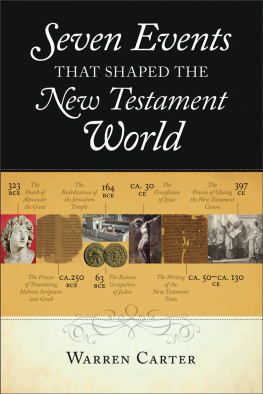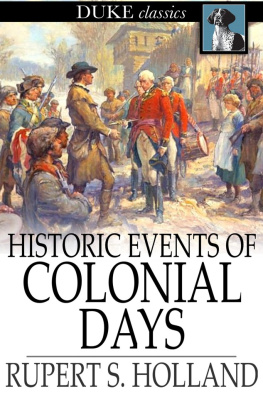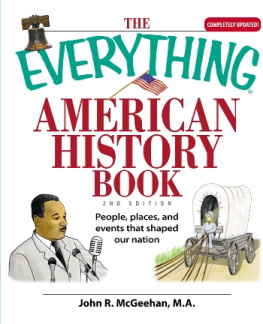ABOUT THE AUTHOR
Harlan Lebo is a senior fellow at the Center for the Digital Future at USC Annenberg. He writes about history, science, the humanities, society, and digital technology.
Lebo is the author of four books about the making of a trio of Americas finest films: The Godfather Legacy, Casablanca: Behind the Scenes, and two books on Citizen Kane: a coffee-table project for the films 50th anniversary in 1991 and a comprehensive book for the 75th anniversary titled Citizen Kane: A Filmmakers Journey, published in 2016.
Lebo is the 16-time author of Surveying the Digital Future, the annual study by the Center for the Digital Future that explores the impact of the Internet and digital technology on users and nonusers.
Lebo is also a communications consultant for organizations involved in core research, health care, higher education, technology start-ups, and social communication. He served as the historical consultant to Paramount Pictures during the 50th-anniversary release of Citizen Kane.
Lebo is a lifelong resident of Los Angeles.
ACKNOWLEDGMENTS
T his book is the sum of many moving partsinterviews, websites, books, videos, and articles on four vastly different subjectsin all some 800,000 words of research material and related media. The glue that binds it all together came from everyone who so generously gave their time.
In particular, I wanted to express special thanks to the following people:
Layne Karafantis, Roger Launius, and Peter Westwickthese three historians not only provided enlightening commentary about the history of aviation and the American space program but also gently guided my impetuous ideas for this project in its earliest stages.
The retired engineers from NASA, the Ames Research Center, and their contractors shared with me their experiences of the early days of the space program and the Apollo project; their enthusiasm about humanitys adventures in aviation and space is just as strong today as it was during the missions. Tom Snyder of the Owl Feathers Society at the Ames Research Center did much to bring me together with his colleagues. April Gage and Abby Tabor at NASA Ames pointed me toward all the right paths at the start.
Suzanne Cosgrove graciously recalled the details of her childhood and teen yearsmany of them painful and all of them most appreciated. The Elkind family kindly allowed me to describe their role in Suzannes life.
Richard Pfeiffer, attorney to Leslie Van Houten, directed me to the best information about his client as well as sources about Charles Manson.
Wade Lawrence, Emily Casey, and Robin Green at the Bethel Woods Center for the Arts did everything I could have hoped for. My thanks to them especially for connecting me with six eyewitnesses of WoodstockElizabeth Alexander, Beth Henry, Charlie Maloney, Jim Shelley, Patricia Tempel, and Glenn Wooddellwho shared their life stories with me and helped me appreciate the magic of the Woodstock experience.
My colleagues Jeff Cole and Brad Berens, whose own thoughts are included in several chapters, guided me toward others with extraordinary perspectives on the current issues in digital technology and the fascinating future.
My agent, Felicia Eth, was tenacious in her support of the idea for this book, as she has been about my projects for more than 30 years. My endless gratitude goes to her.
My editors at Rowman & Littlefield, Jon Sisk and Kate Powers, were willing to take a chance with this approach to historical writing.
My family and friends have been enthusiastic and supportive right from the beginninga sustaining influence every step of the way.
And finallymy wife, Monica Dunahee, has worked on this project since its inception, and has been the primary source of the best of the research, identifying interview subjects, and contributing to the tone and direction. This book exists because her involvement made it possible.
With so many thanks to all,
H. L.
Los Angeles, California
AUTHORS NOTE
I think it might be helpful to say a word about what I have tried to accomplish here.
The four events that are the focus of this book are linked by a coincidental proximity in time in 1969: they all occurred with 100 days between them. The events could not be more varied if they were chosen deliberately: a magnificent national achievement, a bloody crime spree on a horrific scale, a celebration of youth and music that defined a generation, and a seemingly routine technical experiment that would be generally unknown for almost 20 years but would then have deep and permanent effects across the globe.
My goal is to explain the journey that led to these milestones and how each in its own way has shaped the American experience. With that goal in mind, I have focused on the points that seem particularly compelling in hopes that they will spur your interest in digging deeper. (See the Resources section for some fascinating opportunities.) If this book encourages you to explore these subjects in more detail, I have done my job.
I invite your comments.
H. L.
Los Angeles, California
February 2019
leboprojects@gmail.com
BIBLIOGRAPHY
INTERVIEWS
Alexander, Elizabeth (Woodstock attendee) in discussion with the author, August 14, 2018.
Anderson, Terry (professor, Texas A&M), October 3, 2018.
Arnold, Jim (engineer, NASA Ames), August 3, 2018.
Bell, Genevieve (professor, Australian National University), September 27, 2018.
Berens, Brad (principal, Big Digital Ideas), September 4 and November 5, 2018.
Blackburn, Jerry (engineer, North American Aviation), August 18, 2018.
Boyd, Jack (senior adviser, NASA Ames), July 31, 2018.
Braudy, Leo (professor, USC), November 7, 2018.
Buchanan, Andy (historian), August 22, 2018.
Cole, Jeff (director, Center for the Digital Future), August 15, 2018.
Cosgrove, Suzanne (nurse), July 2728, 2018.
Dallek, Robert (presidential historian), July 27 and October 19, 2018.
Daniels, Karen (crime victim), August 22, 2018.
Deverell, William (historian, USC), August 9, 2018.
Doyle, Michael William (historian), August 14, 2018.
Evans, Mitch (administrator, Kennedy Space Center), August 15, 2018.
Henry, Beth (Woodstock attendee), August 15, 2018.
Hersch, Matthew (Harvard science historian), September 13, 2018.
Jeffries, Bill (Sputnik witness), March 14, 1999.
Karafantis, Layne (historian, USC), July 30, 2018.
Kleinrock, Leonard (Internet pioneer), September 24, 1999, and July 21, 2018.
Kline, Charley (Internet pioneer), July 27, 2018.
Kraus, Sam (engineer, NASA), November 17, 2017.
Lang, Michael (promoter, Woodstock), July 21, 2018.
Launius, Roger (historian, NASA), August 4, 2018.
Leslie, Stewart W. (historian, Johns Hopkins University), August 23, 2018.
Levin, Brian, (director, Center for the Study of Hate and Extremism), October 18, 2018.
Maloney, Charlie (Woodstock attendee), July 31, 2018.
Marx, Gary (historian, MIT), August 15, 2018.
Paulson, Ken (columnist, dean, Middle Tennessee University), August 8, 2018.
Shelley, Jim (Woodstock attendee), July 30, 2018.
Skey, Samantha (technology executive), August 28, 2018.
Snyder, Tom (engineer, NASA Ames), August 8, 2018.
Tedrow, Leslie (Silicon Valley resident), August 11, 2018.
Tempel, Patricia (Woodstock attendee), August 8 and 9, 2018.
Thompson, Cynthia (artist), August 24, 2018.
Tobaccowala, Rishad (futurist), August 28, 2018.
Turner, Fred (professor, Stanford), August 15, 2018.
Weldon, Marcus (president, Bell Labs), October 8, 2018.
Westwick, Peter (historian, USC), August 16, 2018.






